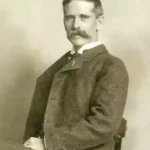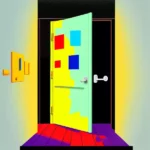 | |
The Boy of Nazareth Dreams | |
| Author | Henry van Dyke |
|---|---|
| Published |
1888
|
| Language | English |
| Nationality | American |
| Genre | Essays, Poetry |
1888 Short Story
The Boy of Nazareth Dreams
The Boy of Nazareth Dreams is an English Essays, Poetry short story by American writer Henry van Dyke. It was first published in 1888.
The Boy of Nazareth Dreams
by Henry van Dyke
There was a Boy in Nazareth long ago whose after-life was wonderful, and whose story is written in the heart of mankind. His birth was predicted in dreams foretelling marvellous things of him, and in later years there were many true visions wherein he played a wondrous part.
Did he not also dream, in the days of his youth, while he was growing in wisdom and stature, and in favor with God and man? It would be strange indeed if his boyhood was not often visited and illumined by those swift flashes of insight and clear unveilings of hidden things, which we call dreams but which are in truth rays from “the fountain light of all our day.”
The first journey that he made, his earliest visit to a great city, the three days and nights when he was lost there–surely these were times when visions must have come to him, full of mystery and wonder, yet clothed in the simple, real forms of this world, which he was learning to know. So I let my revery follow him on that unrecorded path, remembering where it led him, and imagining, in the form of dreams, what may have met him on his way.
I
THE JOURNEY TO THE CITY
There was not a lad in the country town of Nazareth, nestled high on the bosom of the Galilean hills, who did not often look eagerly southward over the plain toward the dark mountains of Samaria, and think of the great city which lay beyond them, and long for the time when he would be old enough to go with his family on pilgrimage to Jerusalem.
That journey would carry him out of childhood. It would mark the beginning of his life as a “son of the commandment,” a member of the Hebrew nation. Moreover it would be an adventure–a very great and joyous adventure, which youth loves.
Palestine, in the days when Augustus Caesar was Lord of the World, was an exciting country to travel in. It was full of rovers and soldiers of fortune from many lands. It was troubled by mobs and tumults and rebellions, infested with landlopers and brigands. Jerusalem itself was not only a great city, it was a boisterous and boiling city, crowded with visitors from all parts of the world, merchants and travellers, princes and beggars, citizens of Rome and children of the Desert. There were strange sights to be seen there, and all kinds of things were sold in the markets. So while the heart of young Nazareth longed for it, the heart of older Nazareth was not without anxieties and apprehensions in regard to the first pilgrimage.
This was doubly true in the home of the Boy of whom I speak. He was the first-born, the darling of his parents, a lad beloved by all who knew him. His mother hung on him with mystical joy and hope. He was the apple of her eye. Deep in her soul she kept the memory of angelic words which had come to her while she carried him under her heart–words which made her believe that her son would be the morning-star of Israel and a light unto the Gentiles. So she cherished the Boy and watched over him with tender, unfailing care, as her most precious possession, her living, breathing, growing treasure.
When he reached the age of twelve, he was old enough to go up to the Temple and take part in the national feast of the Passover. So she clad him in the garments of youth and made him ready for the four days’ pilgrimage.
It was a camping-trip, a wonder-walk, full of variety, with a spice of danger and a feast of delight.
The Boy was the joy of the journey. His keen interest in all things seen and heard was like a refreshing spring of water to the older pilgrims. They had so often travelled the same road that they had forgotten that it might be new every morning. His unwearying vigor and gladness as he ran down the hillsides, or scrambled among the rocks far above the path, or roamed through the fields filling his hands with flowers, was like a merry song that cheered the long miles of the way. He was glad to be alive, and it made the others glad to look at him.
There were sixty or seventy kinsfolk and neighbors, plain rustic men and women, in the little company that set out from Nazareth. The men carried arms to protect the caravan from robbers or marauders. As they wound slowly down the steep, stony road to the plain of Esdraelon the Boy ran ahead, making short cuts, turning aside to find a partridge’s nest among the bushes, jumping from rock to rock like a young gazelle, or poising on the edge of some cliff in sheer delight of his own sure-footedness.
His body was outlined against the sky; his blue eyes (like those of his mother, who was a maid of Bethlehem) sparkled with the joy of living; his long hair was lifted and tossed by the wind of April. But his mother’s look followed him anxiously, and her heart often leaped in her throat.
“My son,” she said, as they took their noon-meal in the valley at the foot of dark Mount Gilboa, “you must be more careful. Your feet might slip.”
“Mother,” answered the Boy, “I am truly very careful. I always put my feet in the places that God has made for them–on the big, strong rocks that will not roll. It is only because I am so happy that you think I am careless.”
The tents were pitched, the first night, under the walls of Bethshan, a fortified city of the Romans. Set on a knoll above the river Jordan, the town loomed big and threatening over the little camp of the Galilean pilgrims. But they kept aloof from it, because it was a city of the heathen. Its theatres and temples and palaces were accursed. The tents were indifferent to the city, and when the night opened its star-fields above them and the heavenly lights rose over the mountains of Moab and Samaria, the Boy’s clear voice joined in the slumber-song of the pilgrims:
“I will lift up mine eyes to the hilis,
From whence cometh my help;
My help cometh from the Lord,
Who made heaven and earth.
He will not suffer thy foot to stumble,
He who keepeth thee will not slumber.
Behold, He who guardeth Israel
Will neither slumber nor sleep.”
Then they drew their woollen cloaks over their heads and rested on the ground in peace.
For two days their way led through the wide valley of the Jordan, along the level land that stretched from the mountains on either side to the rough gulch where the river was raging through its jungle. They passed through broad fields of ripe barley and ripening wheat, where the quail scuttled and piped among the thick-growing stalks. There were fruit-orchards and olive-groves on the foothills, and clear streams ran murmuring down through glistening oleander thickets. Wild flowers sprang in every untilled corner; tall spikes of hollyhocks, scarlet and blue anemones, clusters of mignonette, rock-roses, and cyclamens, purple iris in the moist places, and many-colored spathes of gladiolus growing plentifully among the wheat.
The larks sang themselves into the sky in the early morn. Hotter grew the sun and heavier the air in that long trough below the level of the sea. The song of birds melted away. Only the hawks wheeled on motionless wings above silent fields, watching for the young quail or the little rabbits, hidden among the grain.
The pilgrims plodded on in the heat. Companies of soldiers with glittering arms, merchants with laden mules jingling their bells, groups of ragged thieves and bold beggars met and jostled the peaceful travellers on the road. Once a little band of robbers, riding across the valley to the land of Moab, turned from a distance toward the Nazarenes, circled swiftly around them like hawks, whistling and calling shrilly to one another. But there was small booty in that country caravan, and the men who guarded it looked strong and tough; so the robbers whirled away as swiftly as they had come.
The Boy had stood close to his father in this moment of danger, looking on with surprise at the actions of the horsemen.
“What did those riders want?” he asked.
“All we have,” answered the man.
“But it is very little,” said the Boy. “Nothing but our clothes and some food for our journey. If they were hungry, why did they not ask of us?”
The man laughed. “These are not the kind that ask,” he said, “they are the kind that take–what they will and when they can.”
“I do not like them,” said the Boy. “Their horses were beautiful, but their faces were hateful–like a jackal that I saw–in the gulley behind Nazareth one night. His eyes were burning red as fire. Those men had fires inside of them.”
For the rest of that afternoon he walked more quietly and with thoughtful looks, as if he were pondering the case of men who looked like jackals and had flames within them.
At sunset, when the camp was made outside the gates of the new city of Archelaus, on a hillock among the corn-fields, he came to his mother with his hands full of the long lavender and rose and pale-blue spathes of the gladiolus-lilies.
“Look, mother,” he cried, “are they not fine–like the clothes of a king?”
“What do you know of kings?” she answered, smiling. “These are only wild lilies of the field. But a great king, like Solomon, has robes of thick silk, and jewels on his neck and his fingers, and a big crown of gold on his head.”
“But that must be very heavy,” said the Boy, tossing his head lightly. “It must tire him to wear a crown-thing and such thick robes. Besides, I think the lilies are really prettier. They look just as if they were glad to grow in the field.”
The third night they camped among the palm-groves and heavy-odored gardens of Jericho, where Herod’s splendid palace rose above the trees. The fourth day they climbed the wild, steep, robber-haunted road from the Jordan valley to the highlands of Judea, and so came at sundown to their camp-ground among friends and neighbors on the closely tented slope of the Mount of Olives, over against Jerusalem.
What an evening that was for the Boy! His first sight of the holy city, the city of the great king, the city lifted up and exalted on the sides of the north, beautiful for situation, the joy of the whole earth! He had dreamed of her glory as he listened at his mother’s knee to the wonder-tales of David and Solomon and the brave adventures of the fighting Maccabees. He had prayed for the peace of Jerusalem every night as he kneeled by his bed and lifted his hands toward the holy place. He had tried a thousand times to picture her strength and her splendor, her marvels and mysteries, her multitude of houses and her vast bulwarks, as he strayed among the humble cottages of Nazareth or sat in the low doorway of his own home.
Now his dream had come true. He looked into the face of Jerusalem, just across the deep, narrow valley of the Kidron, where the shadows of the evening were rising among the tombs. The huge battlemented walls, encircling the double mounts of Zion and Moriah–the vast huddle of white houses, covering hill and hollow with their flat roofs and standing so close together that the streets were hidden among them–the towers, the colonnades, the terraces–the dark bulk of the Roman castle–the marble pillars and glittering roof of the Temple in its broad court on the hilltop–it was a city of stone and ivory and gold, rising clear against the soft saffron and rose and violet of the sunset sky.
The Boy sat with his mother on the hillside while the light waned, and the lamps began to twinkle in the city, the stars to glow in the deepening blue. He questioned her eagerly–what is that black tower?–why does the big roof shine so bright?–where was King David’s house?–where are we going to-morrow?
“To-morrow,” she answered, “you will see. But now it is the sleep-time. Let us sing the psalm that we used to sing at night in Nazareth–but very softly, not to disturb the others–for you know this psalm is not one of the songs of the pilgrimage.”
So the mother and her Child sang together with low voices:
“In peace will I both lay me down and sleep, For thou, Lord, makest me dwell in safety.”
The tune and the words quieted the Boy. It was like a bit of home in a far land.
II
THE GILDED TEMPLE
The next day was full of wonder and excitement. It was the first day of the Feast, and the myriad of pilgrims crowded through the gates and streets of the city, all straining toward the enclosure of the Temple, within whose walls two hundred thousand people could be gathered. On every side the Boy saw new and strange things: soldiers in their armor, and shops full of costly wares; richly dressed Sadducees with their servants following; Jews from far-away countries, and curious visitors from all parts of the world; ragged children of the city, and painted women of the street, and beggars and outcasts of the lower quarters, and rich ladies with their retinues, and priests in their snowy robes.
The family from Nazareth passed slowly through the confusion, and the Boy, bewildered by the changing scene, longed to get to the Temple. He thought everything must be quiet and holy there. But when they came into the immense outer court, with its porticos and alcoves, he found the confusion worse than ever. For there the money-changers and the buyers and sellers of animals for sacrifice were bargaining and haggling; and the thousands of people were jostling and pushing one another; and the followers of the Pharisees and the Sadducees were disputing; and on many faces he saw that strange look which speaks of a fire in the heart, so that it seemed like a meeting-place of robbers.
His father had bought a lamb for the Passover sacrifice, at one of the stalls in the outer court, and was carrying it on his shoulder. He pressed on through the crowd at the Beautiful Gate, the Boy and his mother following until they came to the Court of the Women. Here the mother stayed, for that was the law–a woman must not go farther. But the Boy was now “a son of the Commandment,” and he followed his father through the Court of Israel to the entrance of the Court of the Priests. There the little lamb was given to a priest, who carried it away to the great stone altar in the middle of the court.
The Boy could not see what happened then, for the place was crowded and busy. But he heard the blowing of trumpets, and the clashing of cymbals, and the chanting of psalms. Black clouds of smoke went up from the hidden altar; the floor around was splashed and streaked with red. After a long while, as it seemed, the priest brought back the dead body of the lamb, prepared for the Passover supper.
“Is this our little lamb?” asked the Boy as his father took it again upon his shoulder.
The father nodded.
“It was a very pretty one,” said the Boy. “Did it have to die?”
The father looked down at him curiously. “Surely,” he said, “it had to be offered on the altar, so that we can keep our feast according to the law of Moses to-night.”
“But why,” persisted the Boy, “must all the lambs be killed in the Temple? Does God like that? How many do you suppose were brought to the altar to-day?”
“Tens of thousands,” answered the father.
“It is a great many,” said the Boy, sighing. “I wish one was enough.”
He was silent and thoughtful as they made their way through the Court of the Women and found the mother and went back to the camp on the hillside. That night the family ate their Paschal feast, with their loins girded as if they were going on a journey, in memory of the long-ago flight of the Israelites from Egypt. There was the roasted lamb, with bitter herbs, and flat cakes of bread made without yeast. A cup of wine was passed around the table four times. The Boy asked his father the meaning of all these things, and the father repeated the story of the saving of the first-born sons of Israel in that far-off night of terror and death when they came out of Egypt. While the supper was going on, hymns were sung, and when it was ended they all chanted together:
“Oh, give thanks to the Lord, for He is good;
For His loving-kindness endureth for ever.”
So the Boy lay down under his striped woollen cloak of blue and white and drifted toward sleep, glad that he was a son of Israel, but sorry when he thought of the thousands of little lambs and the altar floor splashed with red. He wondered if some day God would not give them another way to keep that feast.
The next day of the festival was a Sabbath, on which no work could be done. But the daily sacrifice of the Temple, and all the services and songs and benedictions in its courts, continued as usual, and there was a greater crowd than ever within its walls. As the Boy went thither with his parents they came to a place where a little house was beginning to burn, set on fire by an overturned lamp. The poor people stood by, wringing their hands and watching the flames.
“Why do they not try to save their house?” cried the Boy.
The father shook his head. “They can do nothing,” he answered. “They follow the teaching of the Pharisees, who say that it is unlawful to put out a fire on the Sabbath, because it is a labor.”
A little later the Boy saw a cripple with a crutch, sitting in the door of a cottage, looking very sad and lonely.
“Why does he not go with the others,” asked the Boy, “and hear the music at the Temple? That would make him happier. Can’t he walk?”
“Yes,” answered the father, “he can hop along pretty well with his crutch on other days, but not on the Sabbath, for he would have to carry his crutch, and that would be labor.”
All the time he was in the Temple, watching the procession of priests and Levites and listening to the music, the Boy was thinking what the Sabbath meant, and whether it really rested people and made them happier.
The third day of the festival was the offering of the first-fruits of the new year’s harvest. That was a joyous day. A sheaf of ripe barley was reaped and carried into the Temple and presented before the high altar with incense and music. The priests blessed the people, and the people shouted and sang for gladness.
The Boy’s heart bounded in his breast as he joined in the song and thought of the bright summer begun, and the birds building their nests, and the flowers clothing the hills with beautiful colors, and the wide fields of golden grain waving in the wind. He was happy all day as he walked through the busy streets with his parents, buying some things that were needed for the home in Nazareth; and he was happy at night when he lay down under an olive-tree beside the tent, for the air was warm and gentle, and he fell asleep under the tree, dreaming of what he would see and do to-morrow.
III
HOW THE BOY WAS LOST
Now comes the secret of the way he was lost–a way so simple that the wonder is that no one has ever dreamed of it before.
The three important days of the Passover were ended, and the time had come when those pilgrims who wished to return to their homes might leave Jerusalem without offense, though it was more commendable to remain through the full seven days. The people from Nazareth were anxious to be gone–they had a long road to travel–their harvests were waiting. While the Boy, tired out, was sleeping under the tree, the question of going home was talked out and decided. They would break camp at sunrise, and, joining with others of their countrymen who were tented around them, they would take the road for Galilee.
But the Boy awoke earlier than any one else the next morning. Before the dawn a linnet in the tree overhead called him with twittering songs. He was rested by his long sleep. His breath came lightly. The spirit of youth was beating in his limbs, His heart was eager for adventure. He longed for the top of a high hill–for the wide, blue sky–for the world at his feet–such a sight as he had often found in his rambles among the heights near Nazareth. Why not? He would return in time for the next visit to the Temple.
Quietly he stepped among the sleeping-tents in the dark. A footpath led through the shadowy olive-grove, up the hillside, into the open. There the light was clearer, and the breeze that runs before the daybreak was dancing through the grass. The Boy turned to the left, following along one of the sheep-trails that crossed the high, sloping pastures. Then he bore to the right, breasting the long ridge, and passed the summit, running lightly to the eastward until he came to a rounded, rocky knoll. There he sat down among the little bushes to wait for sunrise.
Far beyond the wrinkled wilderness of Tekoa, and the Dead Sea, and the mountain-wall of Moab, the rim of the sky was already tinged with silvery gray. The fading of the stars travelled slowly upward, and the brightening of the rose of dawn followed it, until all the east was softly glowing and the deep blue of the central heaven was transfused with turquoise light. Dark in the gulfs and chasms of the furrowed land the night lingered. Bright along the eastern peaks and ridges the coming day, still hidden, revealed itself in a fringe of dazzling gold, like the crest of a long mounting wave. Shoots and flashes of radiance sprang upward from the glittering edge. Streamers of rose-foam and gold-spray floated in the sky. Then over the barrier of the hills the sun surged royally-crescent, half-disk, full-orb–and overlooked the world. The luminous tide flooded the gray villages of Bethany and Bethphage, and all the emerald hills around Bethlehem were bathed in light.
The Boy sat entranced, watching the miracle by which God makes His sun to shine upon the good and the evil. How strange it was that God should do that–bestow an equal light upon those who obeyed Him and those who broke His law! Yet it was splendid, it was King-like to give in that way, with both hands. No, it was Father-like–and that was what the Boy had learned from his mother–that God who made and ruled all things was his Father. It was the name she had taught him to use in his prayers. Not in the great prayers he learned from the book–the name there was Adonai, the Lord, the Almighty. But in the little prayers that he said by himself it was “my Father!” It made the Boy feel strangely happy and strong to say that. The whole world seemed to breathe and glow around him with an invisible presence. For such a Father, for the sake of His love and favor, the Boy felt he could do anything.
More than that, his mother had told him of something special that the Father had for him to do in the world. In the evenings during the journey and when they were going home together from the Temple, she had repeated to him some of the words that the angel-voices had spoken to her heart, and some of the sayings of wise men from the East who came to visit him when he was a baby. She could not understand all the mystery of it; she did not see how it was going to be brought to pass. He was a child of poverty and lowliness; not rich, nor learned, nor powerful. But with God all things were possible. The choosing and calling of the eternal Father were more than everything else. It was fixed in her heart that somehow her Boy was sent to do a great work for Israel. He was the son of God set apart to save his people and bring back the glory of Zion. He was to fulfil the promises made in olden time and bring in the wonderful reign of the Messiah in the world–perhaps as a forerunner and messenger of the great King, or perhaps himself–ah, she did not know! But she believed in her Boy with her whole soul; and she was sure that his Father would show him what to do.
These sayings, coming amid the excitements of his first journey, his visit to the Temple, his earliest sight of the splendor and confusion and misery of the great city, had sunken all the more deeply into the Boy’s mind. Excitement does not blur the impressions of youth; it sharpens them, makes them more vivid. Half-covered and hardly noticed at the time, they spring up into life when the quiet hour comes.
So the Boy remembered his mother’s words while he lay watching the sunrise. It would be great to make them come true. To help everybody to feel what he felt there on the hilltop–that big, free feeling of peace and confidence and not being afraid! To make those robbers in the Jordan valley see how they were breaking the rule of the world and burning out their own hearts! To cleanse the Temple from the things that filled it with confusion and pain, and drive away the brawling buyers and sellers who were spoiling his Father’s great house! To go among those poor and wretched and sorrowful folks who swarmed in Jerusalem and teach them that God was their Father too, and that they must not sin and quarrel any more! To find a better way than the priests’ and the Pharisees’ of making people good! To do great things for Israel–like Moses, like Joshua, like David–or like Daniel, perhaps, who prayed and was not afraid of the lions –or like Elijah and Elisha, who went about speaking to the people and healing them–
The soft tread of bare feet among the bushes behind him roused the Boy. He sprang up and saw a man with a stern face and long hair and beard looking at him mysteriously. The man was dressed in white, with a leathern girdle round his waist, into which a towel was thrust. A leathern wallet hung from his neck, and he leaned upon a long staff.
“Peace be with you, Rabbi,” said the Boy, reverently bowing at the stranger’s feet. But the man looked at him steadily and did not speak.
The Boy was confused by the silence. The man’s eyes troubled him with their secret look, but he was not afraid.
“Who are you, sir,” he asked, “and what is your will with me? Perhaps you are a master of the Pharisees or a scribe? But no–there are no broad blue fringes on your garments. Are you a priest, then?”
The man shook his head, frowning. “I despise the priests,” he answered, “and I abhor their bloody and unclean sacrifices. I am Enoch the Essene, a holy one, a perfect keeper of the law. I live with those who have never defiled themselves with the eating of meat, nor with marriage, nor with wine; but we have all things in common, and we are baptized in pure water every day for the purifying of our wretched bodies, and after that we eat the daily feast of love in the kingdom of the Messiah which is at hand. Thou art called into that kingdom, son; come with me, for thou art called.”
The Boy listened with astonishment. Some of the things that the man said–for instance, about the sacrifices and about the nearness of the kingdom–were already in his heart. But other things puzzled and bewildered him.
“My mother says that I am called,” he answered, “but it is to serve Israel and to help the people. Where do you live, sir, and what is it that you do for the people?”
“We live among the hills of that wilderness,” he answered, pointing to the south, “in the oasis of Engedi. There are palm-trees and springs of water, and we keep ourselves pure, bathing before we eat and offering our food of bread and dates as a sacrifice to God. We all work together, and none of us has anything that he calls his own. We do not go up to the Temple nor enter the synagogues. We have forsaken the uncleanness of the world and all the impure ways of men. Our only care is to keep ourselves from defilement. If we touch anything that is forbidden we wash our hands and wipe them with this towel that hangs from our girdle. We alone are serving the kingdom. Come, live with us, for I think thou art chosen.”
The Boy thought for a while before he answered. “Some of it is good, my master,” he said, “but the rest of it is far away from my thoughts. Is there nothing for a man to do in the world but to think of himself–either in feasting and uncleanness as the heathen do, or in fasting and purifying yourself as you do? How can you serve the kingdom if you turn away from the people? They do not see you or hear you. You are separate from them–just as if you were dead without dying. You can do nothing for them. No, I do not want to come with you and live at Engedi. I think my Father will show me something better to do.”
“Your Father!” said Enoch the Essene. “Who is He?”
“Surely,” answered the Boy, “He is the same as yours. He that made us and made all that we see–the great world for us to live in.”
“Dust,” said the man, with a darker frown–“dust and ashes! It will all perish, and thou with it. Thou art not chosen–not pure!”
With that he went away down the hill; and the Boy, surprised and grieved at his rude parting, wondered a little over the meaning of his words, and then went back as quickly as he could toward the tents.
When he came to the olive-grove they were gone! The sun was already high, and his people had departed hours ago. In the hurry and bustle of breaking camp each of the parents had supposed that the Boy was with the other, or with some of the friends and neighbors, or perhaps running along the hillside above them as he used to do. So they went their way cheerfully, not knowing that they had left their son behind. This is how it came to pass that he was lost.
IV
HOW THE BOY WENT HIS WAY
When the Boy saw what had happened he was surprised and troubled, but not frightened. He did not know what to do. He might hasten after them, but he could not tell which way to go. He was not even sure that they had gone home; for they had talked of paying a visit to their relatives in the south before returning to Nazareth; and some of the remaining pilgrims to whom he turned for news of his people said that they had taken the southern road from the Mount of Olives, going toward Bethlehem.
The Boy was at a loss, but he was not disheartened, nor even cast down. He felt that somehow all would be well with him; he would be taken care of. They would come back for him in good time. Meanwhile there were kind people here who would give him food and shelter. There were boys in the other camps with whom he could play. Best of all, he could go again to the city and the Temple. He could see more of the wonderful things there, and watch the way the people lived, and find out why so many of them seemed sad or angry, and a few proud and scornful, and almost all looked unsatisfied. Perhaps he could listen to some of the famous rabbis who taught the people in the courts of the Temple and learn from them about the things which his Father had chosen him to do.
So he went down the hill and toward the Sheep Gate by which he had always gone into the city. Outside the gate a few boys about his own age, with a group of younger children, were playing games.
“Look there,” they cried–“a stranger! Let us have some fun with him. Halloo, Country, where do you come from?”
“From Galilee,” answered the Boy.
“Galilee is where all the fools live,” cried the children. “Where is your home? What is your name?”
He told them pleasantly, but they laughed at his country way of speaking and mimicked his pronunciation.
“Yalilean! Yalilean!” they cried. “You can’t task. Can you play? Come and play with us.”
So they played together. First, they had a mimic wedding-procession. Then they made believe that the bridegroom was killed by a robber, and they had a mock funeral. The Boy took always the lowest part. He was the hired mourner who followed the body, wailing; he was the flute-player who made music for the wedding-guests to dance to.
So readily did he enter into the play that the children at first were pleased with him. But they were not long contented with anything. Some of them would dance no more for the wedding; others would lament no more for the funeral. Their caprices made them quarrelsome.
“Yalilean fool,” they cried, “you play it all wrong. You spoil the game. We are tired of it. Can you run? Can you throw stones?”
So they ran races; and the Boy, trained among the hills, outran the others. But they said he did not keep to the course. Then they threw stones; and the Boy threw farther and straighter than any of the rest. This made them angry.
Whispering together, they suddenly hurled a shower of stones at him. One struck his shoulder, another made a long cut on his cheek. Wiping away the blood with his sleeve, he turned silently and ran to the Sheep Gate, the other boys chasing him with loud shouts.
He darted lightly through the crowd of animals and people that thronged th







